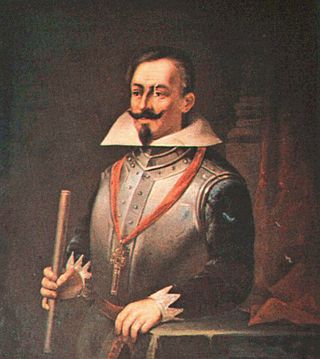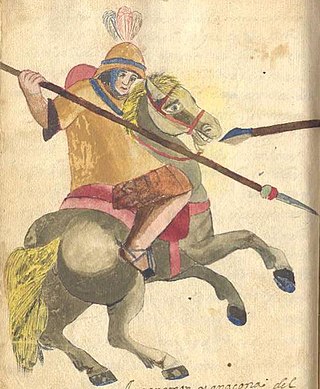
The Libertador General Bernardo O'Higgins Region, often shortened to O'Higgins Region, is one of Chile's 16 first order administrative divisions. It is subdivided into three provinces. It is named in honour of Bernardo O'Higgins Riquelme, one of Chile's founding fathers.

The University of Talca is a Chilean university located in the cities of Talca, Curicó, Linares, Santa Cruz and Santiago. Its headquarters and largest campus are located in the city of Talca. It is part of the Chilean Traditional Universities, the Consortium of State Universities and the Group of Regional Universities of Chile.

The Communist Party of Chile is a communist party in Chile. It was founded in 1912 as the Socialist Workers' Party and adopted its current name in 1922. The party established a youth wing, the Communist Youth of Chile, in 1932.

Toqui is a title conferred by the Mapuche on those chosen as leaders during times of war. The toqui is chosen in an assembly or parliament (coyag) of the chieftains (loncos) of various clans (Rehues) or confederation of clans (Aillarehues), allied during the war at hand. The toqui commanded strict obedience of all the warriors and their loncos during the war, would organize them into units and appoint leaders over them. This command would continue until the toqui was killed, abdicated (Cayancaru), was deposed in another parliament, or upon completion of the war for which he was chosen.

Curicó, meaning "Black Waters" in Mapudungun, is the capital city of the Curicó Province, part of the Maule Region in Chile's central valley.

Colchagua Province is one of three provinces of the central Chilean region of O'Higgins (VI). Its capital is San Fernando. It is bordered on the north by Cachapoal Province, on the east by the Argentine Republic, on the south by Curicó Province, and on the west by Cardenal Caro Province.

Alonso de Sotomayor y Valmediano was a Spanish conquistador from Extremadura, and a Royal Governor of Chile.

Alonso de Ribera y Zambrano was a Spanish soldier and twice Spanish royal governor of Chile.

The primary beer brewed and consumed in Chile is pale lager, though the country also has a tradition of brewing corn beer, known as chicha. Chile's beer history has a strong German influence – some of the bigger beer producers are from the country's southern lake district, a region populated by a great number of German immigrants during the 19th century. Chile also produces English ale-style craft beers while also developing its own craft beer identity.
The Battle of Mataquito was fought in the Arauco War on April 30, 1557, between the forces of the Spanish governor, Francisco de Villagra, and Mapuche headed by their toqui Lautaro. It was a surprise attack, carried out at dawn, on Lautaro's fortified camp between a wooded mountain and the shore of the Mataquito River. The battle is notable for ending Mapuche designs on Santiago, while also avenging the death of former governor Pedro de Valdivia, who had been killed by Lautaro's warriors four years earlier.
Vilumilla was the Mapuche Toqui elected in 1722 to lead the Mapuche Uprising of 1723 against the Spanish for their violation of the peace.

In Chilean historiography, Colonial Chile is the period from 1600 to 1810, beginning with the Destruction of the Seven Cities and ending with the onset of the Chilean War of Independence. During this time, the Chilean heartland was ruled by Captaincy General of Chile. The period was characterized by a lengthy conflict between Spaniards and native Mapuches known as the Arauco War. Colonial society was divided in distinct groups including Peninsulars, Criollos, Mestizos, Indians and Black people.

Anganamón, also known as Ancanamon or Ancanamun, was a prominent war leader of the Mapuche during the late sixteenth and early seventeenth centuries and a Toqui from. Anganamón was known for his tactical innovation of mounting his infantry to keep up with his cavalry.
The Workers' Socialist Party was a leftist political party in Chile that existed between 1940 and 1944.
The 2018 Copa Chile, was the 39th edition of the Copa Chile, the country's national football cup tournament. Santiago Wanderers were the defending champions, but lost to Palestino in the second round of the competition. Palestino went on to become champions after defeating Audax Italiano in the final by an aggregate score of 4–2.
The 2019 Copa Chile, was the 40th edition of the Copa Chile, the country's national football cup tournament. Palestino were the defending champions, but were knocked out of the competition by Santiago Morning in the second round. Colo-Colo were the champions, defeating Universidad de Chile 2–1 in the final.

Rodrigo Antonio González Catalán is a Chilean footballer who currently plays as a defender for Primera B side Santiago Morning.

Colchagua was a province (region) of Chile between 1826 and 1976. Its capital was located in San Fernando during most of its existence. For some years, Curicó and Rancagua were capitals of Colchagua.
Héctor Ovidio Parra Cancino was a Chilean football player and manager who played as a centre-half-back.
Heber Eugenio Jara Valladares, known as Eugenio Jara, was a Chilean football manager and footballer.










